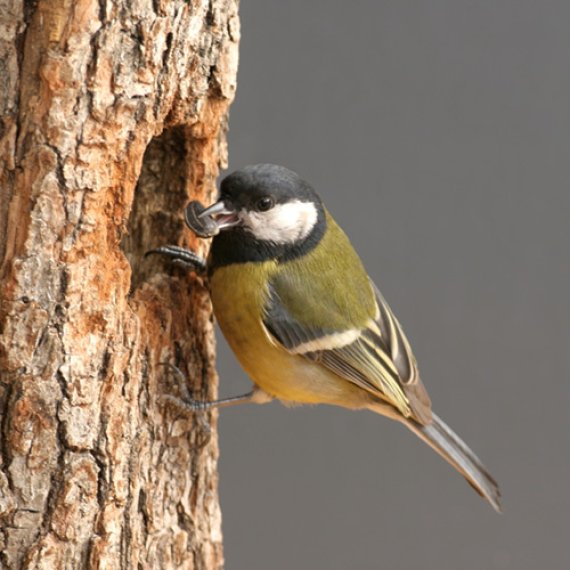Photo: Shutterstock
The Veluwe looks as if it’s in a good state. Is the acidification really so bad?
‘When people go for a walk in the Veluwe, they think it’s fantastic. But researchers see it in a different light. In the 1980s, the acid rain washed out the poor sandy soil. Now nitrogen, in the form of ammonium from intensive livestock farming, has become the main cause of soil acidification. The nitrogen in the soil reduces the availability of essential minerals such as calcium and magnesium. That means they are not getting in the plants or further up the food chain either.’
Are things really that awful for great tits?
‘If you look at the Veluwe as a whole, it’s not so bad. Birds living in the vicinity of built-up areas, for instance, can get their calcium from the crushed shell paths as well. If you look specifically at the woods on poor sandy soil or areas where the heathland has been brought into cultivation, there does indeed seem to be a problem. When you examine the nest boxes in detail, you can see that there are more failures.’
Are great tits the only victims?
‘Acidification is a problem for other plants and animals too but great tits are monitored extensively. They could be the canary in the coalmine. The problem is that nitrogen studies tend to be small-scale. But if I add it all up, I get a strong impression that the entire ecosystem in areas of poor sandy soil is under severe pressure.’
What now?
‘Like climate change, acidification is a very complex and largely invisible problem. The Netherlands is the most heavily fertilized country in the world and we won’t get anywhere unless we reduce fertilization levels. We need more research to get a better understanding of this problem.’

